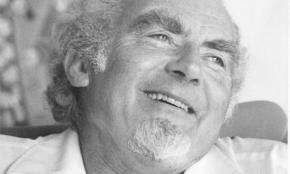journalist
Posts tagged with journalist
Archive
Author
- administrador
- adrianabarbosa
- Alícia Gaspar
- arimildesoares
- camillediard
- candela
- catarinasanto
- claudiar
- cristinasalvador
- franciscabagulho
- guilhermecartaxo
- herminiobovino
- joanapereira
- joanapires
- keitamayanda
- luisestevao
- mariadias
- marialuz
- mariana
- marianapinho
- mariapicarra
- mariaprata
- martacacador
- martalanca
- martamestre
- nadinesiegert
- Nélida Brito
- NilzangelaSouza
- otavioraposo
- raul f. curvelo
- ritadamasio
- samirapereira
- Victor Hugo Lopes
Data
- December 2025
- November 2025
- October 2025
- September 2025
- August 2025
- July 2025
- June 2025
- May 2025
- April 2025
- March 2025
- February 2025
- January 2025
Tags
Most read
- Maneiras de Ver: Empregadas Domésticas e Mulheres-a-dias em Portugal
- A Cidade Invisível:
- O Agente Secreto
- Kriolu Ku Gii ao vivo em Assomada – Debate sobre a Oficialização da Língua Cabo-verdiana
- Cantos e Contos de Resistência: Histórias e Celebrações Afro-Brasileiras”
- Deep time Soundings / Escuta do Tempo Profundo Palestra-Performance de Margarida Mendes
- TEATRO MERIDIONAL PROMOVE AS JORNADAS DE REFLEXÃO SOBRE O IMPACTO DA DESCOLONIZAÇÃO NAS ARTES PERFORMATIVAS
- Rito de Transição: Corpo T
- "DIA JÁ MANCHE": o espírito do Monte Cara renasce
- Casa 75, Branca Clara das Neves
 For many years he was at the centre of the campaigns for Africa’s liberation from colonialism and apartheid, endlessly addressing meetings and working on committees. Extremely tall and with a shock of white hair, and possessing the old-fashioned courtesy of the ex-army officer that he was – or even of the country gentleman that he eventually became after his move to the West Country – he was an unlikely figure at many of these often incoherent and sometimes sectarian events, usually run by student activists and exiles.
For many years he was at the centre of the campaigns for Africa’s liberation from colonialism and apartheid, endlessly addressing meetings and working on committees. Extremely tall and with a shock of white hair, and possessing the old-fashioned courtesy of the ex-army officer that he was – or even of the country gentleman that he eventually became after his move to the West Country – he was an unlikely figure at many of these often incoherent and sometimes sectarian events, usually run by student activists and exiles.